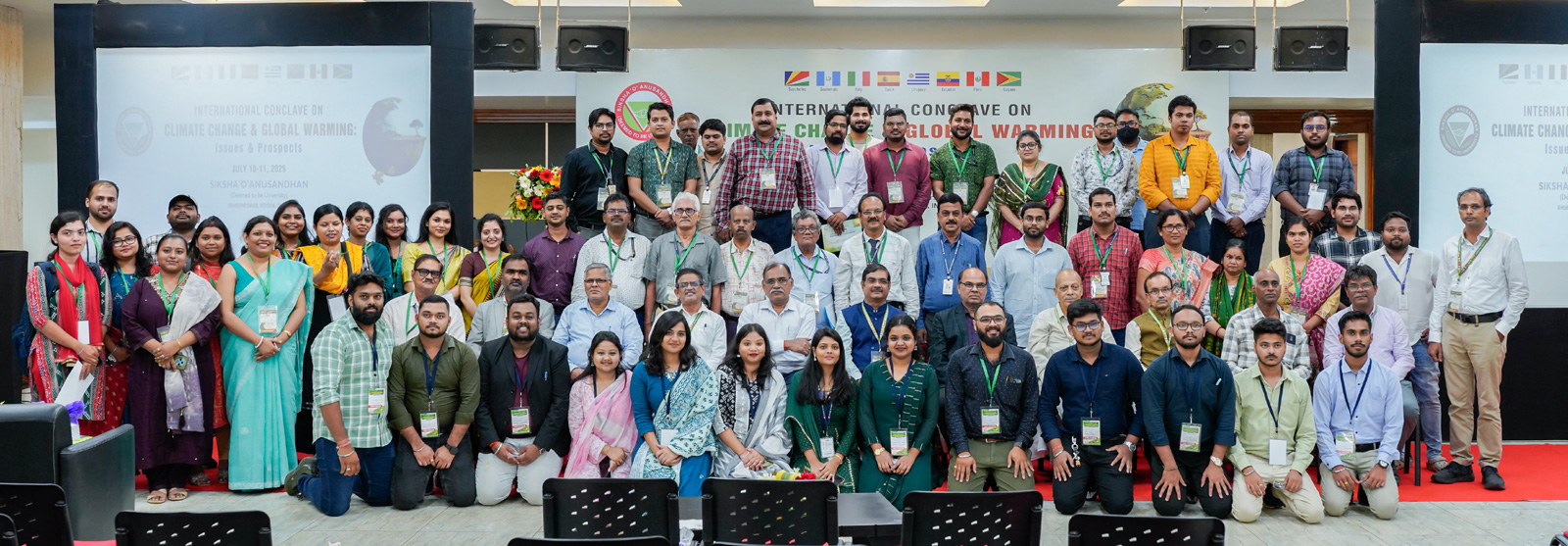Bhubaneswar: The year 2024 has been officially declared the warmest on record since 1901, starkly underscoring the accelerating impact of global climate change. This alarming trend is further highlighted by the fact that ten of the fifteen warmest years have occurred within the relatively short span of 2010 to 2024, an eminent meteorologist revealed at a recent international conclave.
Dr. Akhil Srivastava of the National Weather Forecasting Centre, Indian Meteorological Department (IMD), presented compelling data at the two-day international conclave on ‘Climate Change and Global Warming—Issues and Prospects,’ which concluded here on Friday at SOA Deemed to be University. His findings reveal the five warmest years, in descending order of their temperature anomalies, as:
- 2024: +0.65°C
- 2016: +0.54°C
- 2009: +0.40°C
- 2010: +0.39°C
- 2017: +0.38°C
“This data unequivocally points to a significant warming trend and the urgent need to address global climate change,” Dr. Srivastava stated.
Beyond just record-breaking temperatures, Dr. Srivastava emphasized the escalating threat of heatwaves, which have emerged as the second most devastating extreme weather event globally in terms of human fatalities and losses. Their impact has been particularly pronounced in recent years, affecting populations with increasing frequency and intensity.
He clarified that the gruesome effects of heatwaves are not solely due to high temperatures. “A complex interplay of meteorological factors significantly aggravates their impact,” he explained. These crucial parameters include maximum and minimum temperatures, relative humidity, wind speed, the duration of the heatwave, and its overall intensity.
The data presented by Dr. Srivastava paints a grim picture of the human cost. He noted a staggering 24% increase in the number of heatwaves between 2010 and 2019 compared to the preceding decade (2000-2009). This surge directly correlates with a 27% rise in associated mortality rates, indicating a growing vulnerability of populations to extreme heat.
While advancements in disaster management have led to a remarkable 94% reduction in mortality rates from tropical cyclones over the past two decades, deaths caused by heatwaves have surged by more than 62% during the same period. Dr. Srivastava cautioned that this trend is expected to continue, with heatwaves in India projected to intensify in the future, leading to increased heat stress and further challenges for public health and safety.
“The time for decisive action on climate change is now,” Dr. Srivastava urged. “Understanding the multifaceted nature of heatwaves and their compounding factors is crucial for developing effective mitigation and adaptation strategies to protect lives and livelihoods.”


